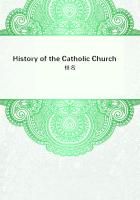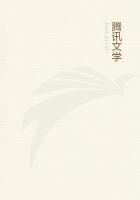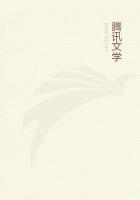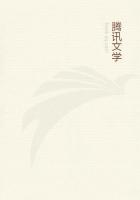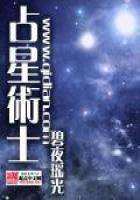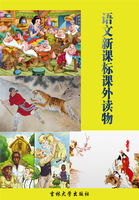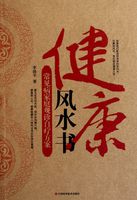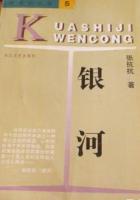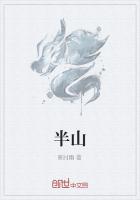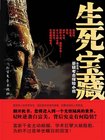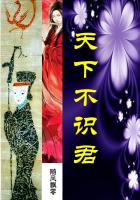Of the trio the first is altogether the most important. Indeed, to a Far Oriental, so fundamental a part of himself is his love of Nature that before we view its mirrored image it will be well to look the emotion itself in the face. The Far Oriental lives in a long day-dream of beauty. He muses rather than reasons, and all musing, so the word itself confesses, springs from the inspiration of a Muse. But this Muse appears not to him, as to the Greeks, after the fashion of a woman, nor even more prosaically after the likeness of a man. Unnatural though it seem to us, his inspiration seeks no human symbol. His Muse is not kin to mankind. She is too impersonal for any personification, for she is Nature.
That poet whose name carries with it a certain presumption of infallibility has told us that "the proper study of mankind is man;" and if material advancement in consequence be any criterion of the fitness of a particular mental pursuit, events have assuredly justified the saying. Indeed, the Levant has helped antithetically to preach the same lesson, in showing us by its own fatal example that the improper study of mankind is woman, and that they who but follow the fair will inevitably degenerate.
The Far Oriental knows nothing of either study, and cares less.
The delight of self-exploration, or the possibly even greater delight of losing one's self in trying to fathom femininity, is a sensation equally foreign to his temperament. Neither the remarkable persistence of one's own characteristics, not infrequently matter of deep regret to their possessor, nor the charmingly unaccountable variability of the fairer sex, at times quite as annoying, is a phenomenon sufficient to stir his curiosity. Accepting, as he does, the existing state of things more as a material fact than as a phase in a gradual process of development, he regards humanity as but a small part of the great natural world, instead of considering it the crowning glory of the whole. He recognizes man merely as a fraction of the universe,--one might almost say as a vulgar fraction of it, considering the low regard in which he is held,--and accords him his proportionate share of attention, and no more.
In his thought, nature is not accessory to man. Worthy M. Perichon, of prosaic, not to say philistinic fame, had, as we remember, his travels immortalized in a painting where a colossal Perichon in front almost completely eclipsed a tiny Mont Blanc behind. A Far Oriental thinks poetry, which may possibly account for the fact that in his mind-pictures the relative importance of man and mountain stands reversed. "The matchless Fuji," first of motifs in his art, admits no pilgrim as its peer.
Nor is it to woman that turn his thoughts. Mother Earth is fairer, in his eyes, than are any of her daughters. To her is given the heart that should be theirs. The Far Eastern love of Nature amounts almost to a passion. To the study of her ever varying moods her Japanese admirer brings an impersonal adoration that combines oddly the aestheticism of a poet with the asceticism of a recluse. Not that he worships in secret, however. His passion is too genuine either to find disguise or seek display. With us, unfortunately, the love of Nature is apt to be considered a mental extravagance peculiar to poets, excusable in exact ratio to the ability to give it expression. For an ordinary mortal to feel a fondness for Mother Earth is a kind of folly, to be carefully concealed from his fellows. A sort of shamefacedness prevents him from avowing it, as a boy at boarding-school hides his homesickness, or a lad his love.
He shrinks from appearing less pachydermatous than the rest.
Or else he flies to the other extreme, and affects the odd; pretends, poses, parades, and at last succeeds half in duping himself, half in deceiving other people. But with Far Orientals the case is different. Their love has all the unostentatious assurance of what has received the sanction of public opinion. Nor is it still at that doubtful, hesitating stage when, by the instrumentality of a third, its soul-harmony can suddenly be changed from the jubilant major key into the despairing minor. No trace of sadness tinges his delight. He has long since passed this melancholy phase of erotic misery, if so be that the course of his true love did not always run smooth, and is now well on in matrimonial bliss. The very look of the land is enough to betray the fact. In Japan the landscape has an air of domesticity about it, patent even to the most casual observer. Wherever the Japanese has come in contact with the country he has made her unmistakably his own. He has touched her to caress, not injure, and it seems as if Nature accepted his fondness as a matter of course, and yielded him a wifely submission in return.
His garden is more human, even, than his house. Not only is everything exquisitely in keeping with man, but natural features are actually changed, plastic to the imprint of their lord and master's mind. Bushes, shrubs, trees, forget to follow their original intent, and grow as he wills them to; now expanding in wanton luxuriance, now contracting into dwarf designs of their former selves, all to obey his caprice and please his eye. Even stubborn rocks lose their wildness, and come to seem a part of the almost sentient life around them. If the description of such dutifulness seems fanciful, the thing itself surpasses all supposition. Hedges and shrubbery, clipped into the most fantastic shapes, accept the suggestion of the pruning-knife as if man's wishes were their own whims. Manikin maples, Tom Thumb trees, a foot high and thirty years old, with all the gnarls and knots and knuckles of their fellows of the forest, grow in his parterres, their native vitality not a whit diminished.

